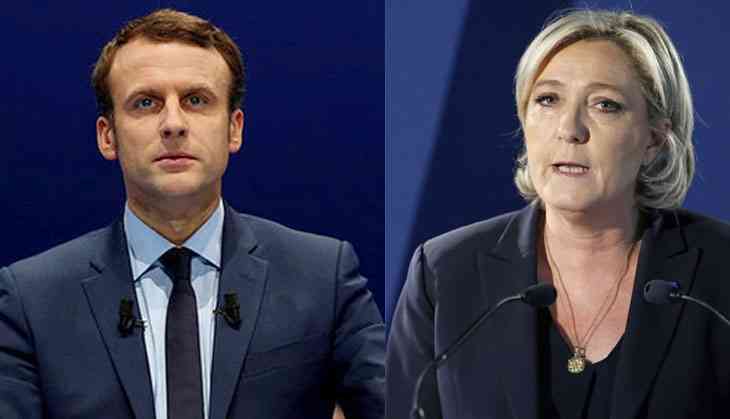A new face for French politics: What will the 7 May results mean for the country

It has been decades since France has had presidential elections as crucial as this one. Elections which will determine not only the political destiny of one of the most powerful countries of the world for the next five years but will also had a severe impact, on the future of the European Union and, as a result, on the future of the world.
This year's elections, however, can be described as exceptional in the history of the French Fifth Republic that started 58 years ago on the initiative of General Charles de Gaulle. There are four main reasons to this.
First, for the first time since General De Gaulle’s resignation as leader of France on 28 April, 1969, a French president at the end of his presidency is not running for a second term in office.
François Hollande, the least popular French president since the second world war, did not find his place among the eleven candidates for the 2017 French presidential elections.
Second, unlike the previous elections, the 'Right' and the 'Left' candidates of the Republicans and the Socialist Party, who have been the representatives of French politics for over 60 years, were not among the favourites of this year’s elections.
As a result, one of the winners of the first round of the French elections is none other than an outsider who, after being a senior adviser to Hollande in 2012 and, two years later the economy minister, stepped down and decided to run as a candidate of “neither Left nor Right”.
Emmanuel Macron's victory in the first round was mainly due to the “fatigue” of French democracy with the old polarised game of the Socialists and the Conservatives in France.
On the Left, the fact that the socialist candidate, Benoît Hamon, the former education minister, won against the former prime minister Manuel Valls in the party primaries, was not enough to make him a forerunner in the French presidential elections.
As for the ultra-liberal former prime minister François Fillon, who emerged as a winner of the right against the former president Sarkozy and the prime minister Alain Marie Juppé, he was also accused of a widening corruption scandal that concerned his wife and children, who were paid as parliamentary assistants – work that according to investigators were never carried out.
Third, as the pre-election polls and yesterday’s votes indicate, the second winner of the first round of the elections is Marine Le Pen, the leader of the French far-right party Front National, who can be considered ,after Emmanuel Macron, as the second most unconventional candidate of these elections.
Not strangely, Le Pen appears to many as a populist leader with the same line of thought as the American President Donald Trump and a strong supporter of Frexit or the exit of France from the European Union.
For many Le Pen's victory in the second round of the French elections on 7 May is being seen as potentially fatal for the European economy and even the euro itself. Le Pen has also promised to take France out of the NATO and to radically slash legal immigration in France.
Fourth, what presents as the most important factor in this first round of the French elections is the large gap which exists among the two winners of the first round in the realm of domestic and foreign policies of France.
This ideological difference could have a negative effect on the next parliamentarian elections in France and therefore create severe problems for the legislative, executive and judicial functions of the future government.
This said, according to all the analysts, Le Pen’s chances of winning the second round against Emmanuel Macron remain highly unlikely.
Let us not forget that Le Pen’s father, Jen –Marie Le Pen shocked France in 2002 by making the second-round run-off. As a result, all the French political parties, including the Socialists and the Communists voted for the other candidate, Jacques Chirac.
This scenario might be repeated, but in any case, even if Le Pen does not win the run-off of the French presidential elections, her win in the first round shows once again that decay, both political and economic, has been the hallmark of France in the past half a century. where little has changed at the level of the administration of the state.
With just two weeks to go before the second round of these elections, all the signs are that despite the acute electoral fatigue and the refusal to vote tactically the French voters might go to the polls to vote massively on 7 May to counter a far-right party.
But the uncertainty that has gripped many French voters over the 2017 presidential elections has made it clear that the French political life is entering a new phase. Even if Macron wins against Le Pen, the French presidential elections would be a jump into the unknown.

